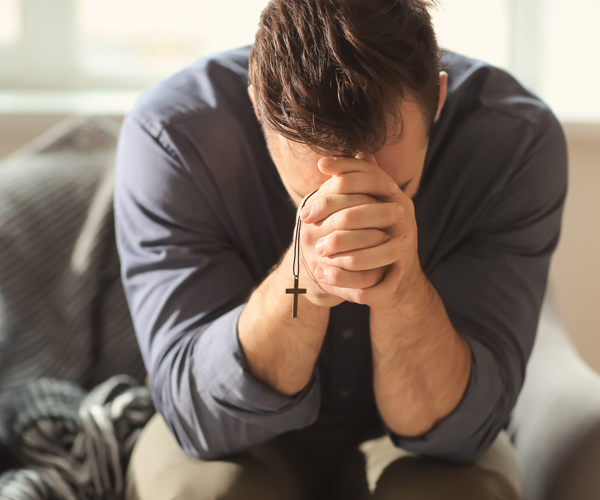How faith and religion are helping during pandemic
By Lynn Allison From Newsmax

More people than ever are turning to faith and religion during the COVID-19 pandemic, and experts say that’s good for their health. A recent study from the Pew Research Center found that the coronavirus outbreak is “having profound impacts on the personal lives of Americans in a variety of ways.”
According to the study, 9 out of 10 people say their lives have changed a little while 44% say it’s changed a lot. The virus has impacted our religious behavior, too. More than 55% of U.S. adults said they have prayed for an end to the viral siege. The vast majority of people who pray daily, including U.S. Christians, said they have turned to prayer during the outbreak, but according to the survey almost 25% of those who seldom if ever pray said that prayer is now a part of their lives.
While many said they’ve scaled back attending religious services primarily because many have been canceled, they reported watching them online.
According to The Oprah Magazine, Dr. Billy Abungu said that faith and medical science do not have to be polar opposites, especially when dealing with a potential casualty of the disease.
“Cases like that offer me the opportunity to speak beyond the medical diagnoses in the traditional sense,” Abungu said. “You’d have to search far and wide to find even the harshest faith skeptic who would turn down an opportunity for a moment of prayer, especially now.”
And experts say that the power of faith and prayer goes far beyond comfort and consolation. It can help heal.
Dr. Harold G. Koenig, professor of psychiatry and behavioral sciences and an associate professor of medicine at Duke University, Medical Center, tells Newsmax:
“Studies prove prayer can prevent people from getting sick — and when they do get sick, prayer can help them get better faster,” he says, adding that an exhaustive analysis of 1,500 medical studies indicated that people who are more religious and pray more have better health.
People who are religious suffer from less depression, have fewer suicidal thoughts, have less heart disease, and are generally happier, says Koenig. They also have stronger immune systems, according to research.
Koenig, the author of “Spirituality in Patient Care” and the medical director of the Center for Spirituality, Theology, and Health at Duke, urges doctors to take a spiritual history of their patients and have a conversation about these issues.
“I think physicians should identify the spiritual needs of the patients and ensure that someone meets these needs,” he says. “They may even pray with the patient if requested and work with the faith community with the patient’s consent.”
© 2020 NewsmaxHealth. All rights reserved.
For more on this story go to: NEWSMAX





